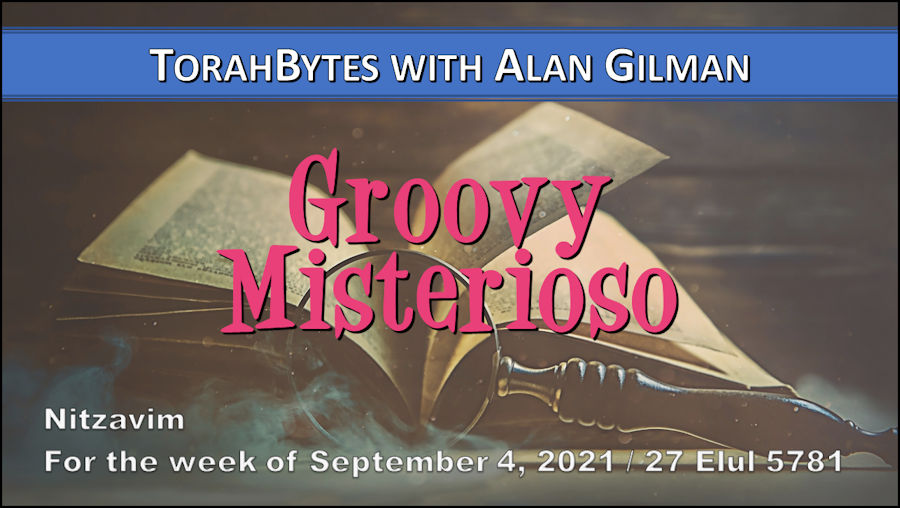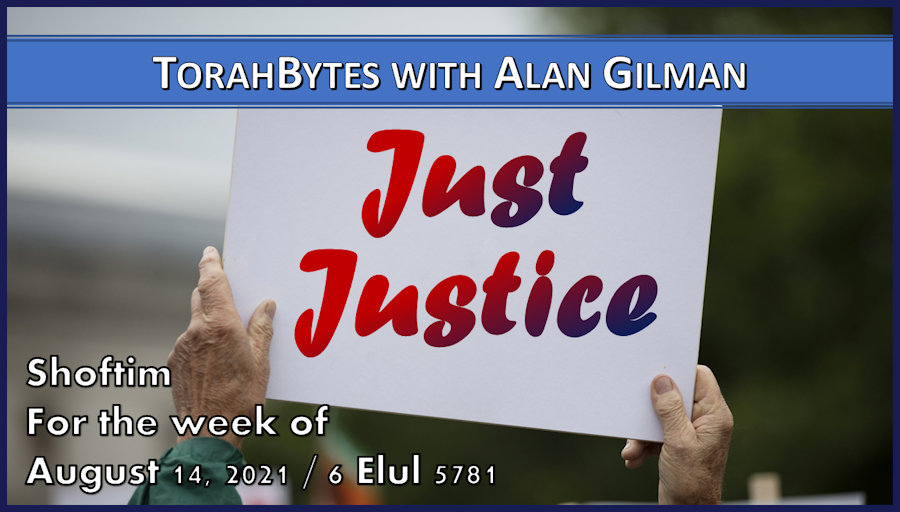For the week of September 4, 2021 / 27 Elul 5781
Nitzavim
Torah: D’varim/Deuteronomy 29:9 – 30:20 (English: 29:10 – 30:20)
Haftarah: Isaiah 61:10 – 63:9
Download Audio [Right click link to download]
The secret things belong to the LORD our God, but the things that are revealed belong to us and to our children forever, that we may do all the words of this law. (D’varim/Deuteronomy 29:29)
Back in the 70s, I played drums in my high school jazz band. One of my favorite pieces was the “Pink Panther Theme” by Henry Mancini. As you may know many pieces of music begin with an instruction in Italian to denote the tempo and feel of the piece. The Pink Panther has the unique instruction, “groovy misterioso” to denote a mysterious, but jazzy and cool feeling. (You can watch it here with Mancini himself on piano, but don’t forget to come back!)
When something is mysterious, it is in the realm of the unknown. Mystery stories, including movies, are driven by key components being hidden from the reader or viewer. Someone dies and we are led to suspect foul play is involved. The story then anticipates the revealing of what’s hidden. If the mystery remains unsolved by the end, most people wouldn’t find the story satisfying.
Yet, many readers of the Bible seem to be fairly happy with unsolved supposed Bible mysteries. When a teacher asserts a difficult-to-understand concept, their explanation is often, “Ah, that’s a mystery,” expecting their students to respond with awe and wonder. God himself, is often described as mysterious. The problem with that is that the Bible doesn’t describe him that way. Instead, he is accessible, knowable, and personable.
The Bible, the New Testament in particular, does use the word mystery, however. It’s the Greek word “mystērion” and appears twenty-seven times, mainly in Paul’s writings; once each in Matthew, Mark, and Luke, all in the context of Yeshua’s teachings on parables; and four times in the Book of Revelation. But it isn’t used to describe that which is unknown or too difficult for us to understand. Rather, it is used to describe truths that were previously hidden which have now been made known. One example is found in Ephesians, chapter three, where Paul explains that God’s intentions to include people of the nations in his messianic plan had been unknown until the good news of Yeshua was proclaimed by his followers.
This kind of mystery is very different from common mystery stories, where we are aware something is going on, but we don’t know what it is, and thus a puzzle to solve. Bible mysteries are not puzzles. Yet that doesn’t stop some people from assuming that there are codes to crack and hidden messages to decipher. Bible mysteries are also not unknowable knowables – the stuff of “you just need to accept what I am telling you even though you will never be able to understand it, because it’s a mystery!”
That doesn’t mean that everything about God and life, be it in the Bible or elsewhere is knowable. Far from it! There are things that we can’t understand. That’s what Moses says in this week’s parsha (weekly Torah reading portion): “The secret things belong to the LORD our God, but the things that are revealed belong to us and to our children forever, that we may do all the words of this law.” (D’varim/Deuteronomy 29:29). This tells us that there exist knowable and unknowable things. God has deemed some matters to be secret, known only to him. They are not mysteries to solve. Instead, they are none of our business. Then there are the revealed things. These are our business. We are to learn them, do them, and pass them on to our children.
This is not to say that there aren’t knowable, but hard-to-understand, things. But they are not hidden. Sometimes we have to put in considerable effort through prayer and study to discover truth and how best to live accordingly.
The Torah tells us that God has graciously revealed in his Word all we need to know to live effective, godly lives. And that’s groovy!
All scriptures, English Standard Version (ESV) of the Bible




